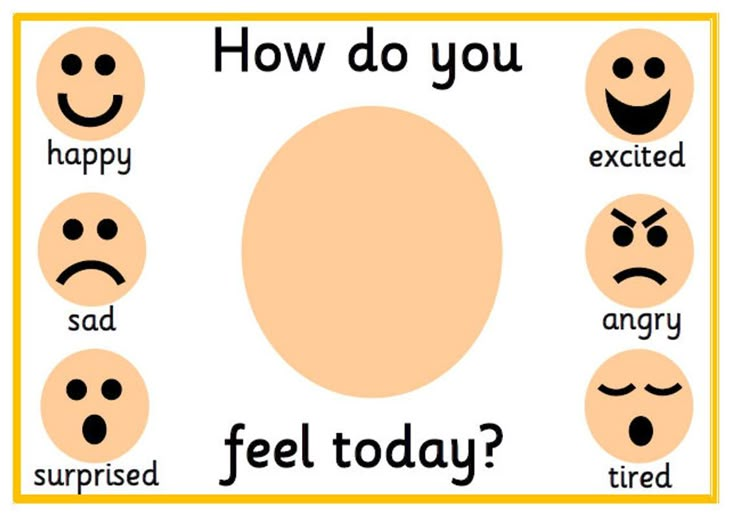How to make someone feel guilty
How to Subtly Make Someone Feel Guilty & Sense the Pain They Caused
If someone has done harm to you, then it’s not surprising that you want to know how to make someone feel guilty. So, here are some ideas you can use.
A lot of people will tell you that it’s wrong to try to make someone feel upset or guilty. The truth? It’s not, if you need them to understand where you’re coming from and to help them see things from your perspective. The only way to do that is to figure out how to make someone feel guilty so they can understand just how much they hurt you.
If they don’t care and are just going about life, they’re going to keep repeating that behavior. They might do it again to you or they could hurt someone else.
If you want them to learn anything from your pain, you have to show them and help them understand what they did.
[Read: How to make someone feel bad – 15 nice and not so nice ways that hurt]
What is guilt?
Guilt is a negative and unpleasant emotion people feel when they have shame or embarrassment as they reflect on themselves and their actions.
They could feel that way because of something they did *or didn’t do* or even having thoughts that are morally wrong.
If a person has done harm to another human being, guilt is a natural response. While it’s self-focused on one hand, it’s also a feeling of social betrayal too.
It is a helpful feeling when you have to repair relationships and discourage actions that could damage them in the first place.
While guilt is never a good feeling, it could be helpful because it can provide a person with the motivation to apologize and change their behavior. It also might help save the bonds between people and avoid future problems. [Read: Guilt complex – what to understand about this powerful emotion]
The ability to feel guilty is related to empathy. Someone will feel guilty because they are able to see the person’s perspective – the one they did harm to. They know the hurt they caused, and that’s why they feel guilty.
An interesting fact, however, is that not everyone necessarily feels guilt. And even if they do, the intensity with which they feel it differs depending on the person.
And even if they do, the intensity with which they feel it differs depending on the person.
If someone is completely unable to feel guilt, then that is a sign of psychopathy, which is something that serial killers have. They don’t feel guilt – that’s why they go on killing others so easily! [Read: The dark triad – What it is and how to spot these traits in people around you]
Types of guilt
Before we talk about how to make someone feel guilty, we need to talk about the types of guilt.
Not all forms are the same, so this will help you understand the feeling better before you go about making someone feel guilty. [Read: Guilt-tripping in a relationship – What it is and how to respond to it]
1. Current guilt
Current guilt is how someone feels about something happening right now. So, it could be a parent who is missing their child’s school play because they have to work. Or, it could be knowing that you don’t spend enough time with your parents.
When you are feeling guilty about something you are doing at the moment, or at least still doing on some sort of ongoing basis, that is called current guilt.
2. Long-standing guilt
This is the type of guilt that you have felt for a long time. Maybe you cheated on an ex and you still carry it with you even though it happened years ago. Or you could have bullied a kid when you were in school, and you still feel bad about it.
Long-standing guilt is something that you carry with you forever – or at least for a very long time. It’s something that doesn’t go away unless you choose to forgive yourself.
You can’t change the past and what you did, but you can change how you think about it. [Read: Feel guilty all the time? How to find the cause and get rid of it]
3. Philosophical guilt
Philosophical guilt is the type that you feel based on your morals and values. Maybe you see TV commercials for starving people in the world.
They are asking for donations to feed them, but you choose not to send any money. You feel guilty that you are part of the problem.
Or you might feel guilty if you don’t go to church often enough. You might intend to, but you let other things take priority over going. This would be a form of religious guilt, which is still philosophical in nature.
You might intend to, but you let other things take priority over going. This would be a form of religious guilt, which is still philosophical in nature.
Guilt is a very powerful emotion if someone can feel it
A lot of people ignore guilt. They don’t want to face the fact that they did something wrong and they just push it back into their mind. They’ll even forget about it completely if it’s not brought up again.
But it’s important for people to feel it. Because it can teach lessons.
The more guilt someone feels, the more they’ll learn from what they did. Therefore, those who ignore it often go around repeating the same mistakes, and eventually, they won’t be able to hide the guilt anymore. Only, it’ll manifest in uglier and more toxic ways. [Read: The guilt complex and what to understand about this powerful emotion]
How to make someone feel guilty so they know what they did wrong
What they did hurt. But what could hurt more is the fact that they don’t seem to care. That’s often a result of their ignorance. If you really want to make someone feel guilty, this is how to do it.
That’s often a result of their ignorance. If you really want to make someone feel guilty, this is how to do it.
1. Determine how you deeply feel
You can’t show someone else how they made you feel if you don’t understand it yourself. Are you mad? Are you resentful? Do you want to hurt them as much as they hurt you?
You really have to think about the emotions going through your head so you can pinpoint exactly what they are.
Once you know them, you can go about reasoning why that person made you feel this way. Only then can you work to make them feel guilty about it.
2. Take time to formulate a plan
You can’t just go up to someone screaming about how much they hurt you. That almost never works and it ends up making you look like a crazy person!
And do you really think they’ll feel all that guilty for hurting someone who’s yelling in their face? No.
You have to take some time to formulate a plan first. Sit yourself down and think about the best way to get their attention so you can talk to them about things.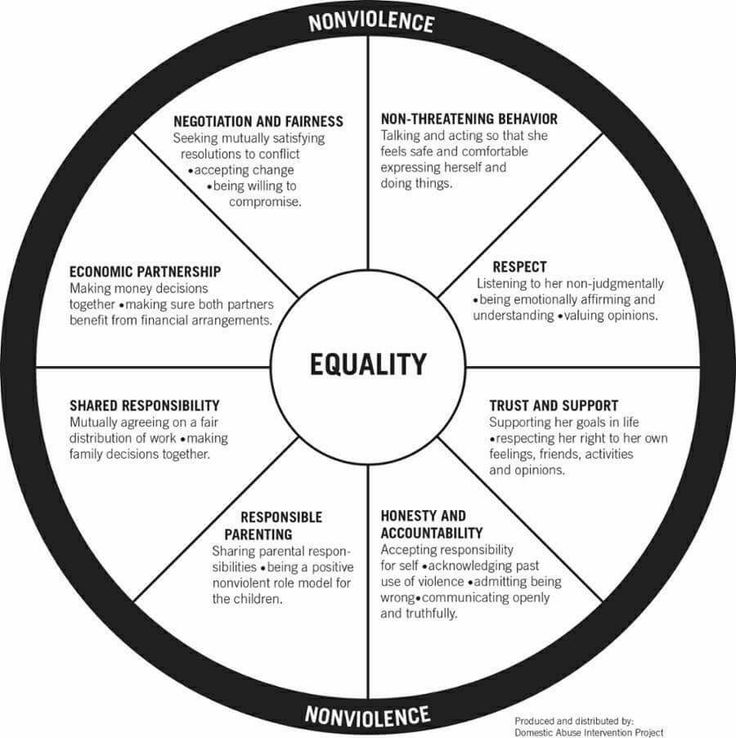 Once you know how you feel and what you want to say, you can proceed with the next step. [Read: 12 questions to help you visualize a good plan]
Once you know how you feel and what you want to say, you can proceed with the next step. [Read: 12 questions to help you visualize a good plan]
3. Confront them
Just do it – but not in an aggressive way. They’ll already start to feel defensive when you tell them you’re hurt. Nobody wants to admit they upset someone and so they’ll avoid you if you start playing the blame game.
Instead, make sure you’re in a calm state where you can talk about things civilly. Even if you’re really angry deep down, put on a more pleasant exterior so you can really reach them without them putting up a wall first.
4. Make them relate to the situation
Oftentimes, people don’t feel guilty because they can’t understand what you felt. That misunderstanding comes from not being able to relate to who they hurt.
In order to remedy this, you have to talk to them in a way that they can understand.
So, explain the situation in a way that they’ll be sensitive to, and in a way that can help them put themselves in your shoes.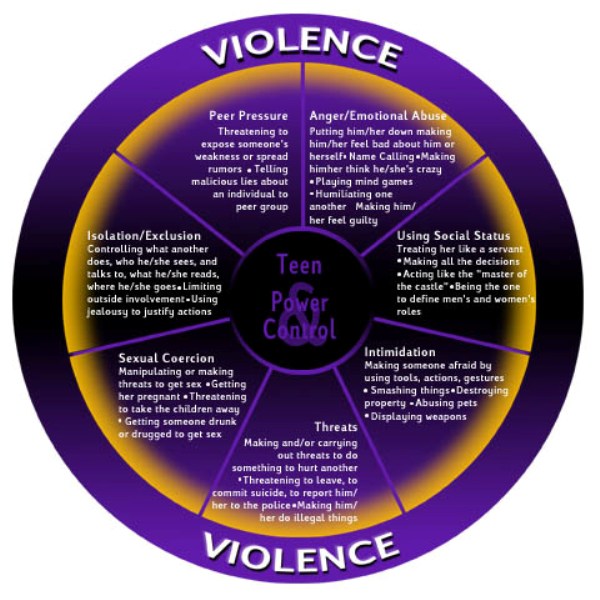 Analogies work great for this as it puts the same situation in a new light that they can actually see. [Read: How to get someone to understand you and open up so you can really connect]
Analogies work great for this as it puts the same situation in a new light that they can actually see. [Read: How to get someone to understand you and open up so you can really connect]
5. Let them see you hurt
It’s okay to show your pain. You don’t have to force yourself to hide it. If you need to cry, then cry. Show them how much pain they caused you.
Keep yourself mildly composed, however, so they don’t just think you’re being dramatic. Trying to cover up how you’re feeling will only make them think you’re lying when you tell them how hurt you are.
6. Get their attention in a major way
We wouldn’t normally condone dramatics, but some people need it. Sometimes you have to get crazy in order to get their attention. So make a scene. If you’re not getting them to hear you any other way, this might be your only option left.
Just make sure that once you have their attention, you simmer down so they can understand where you’re coming from. Otherwise they’ll just get freaked and refuse to listen.
7. Treat them accordingly
You were hurt. They did something bad enough to cause you pain and you should treat them accordingly. Meaning, don’t talk to them. Treat them as if they caused you great pain and don’t be nice about it.
Avoid them and even snub them if need be. Some people need this type of treatment in order to realize that what they did was wrong.
If you go about your day the same as always, they’ll think nothing happened to hurt you and that you’re fine. [Read: How to get cold, calculated revenge and hit back so they feel what you felt]
8. Talk about it logically
If you want to know how to make someone guilty, don’t just use yourself when discussing why you’re hurt. Talk about what happened logically.
Take yourself out of the equation and show them that anyone would be hurt in this situation and it’s not just you.
Some people may think another person is being too sensitive when they claim to have been hurt by something. A logical explanation of why you feel that way can help them understand that it’s not your sensitivity that’s the problem, but their words or action is.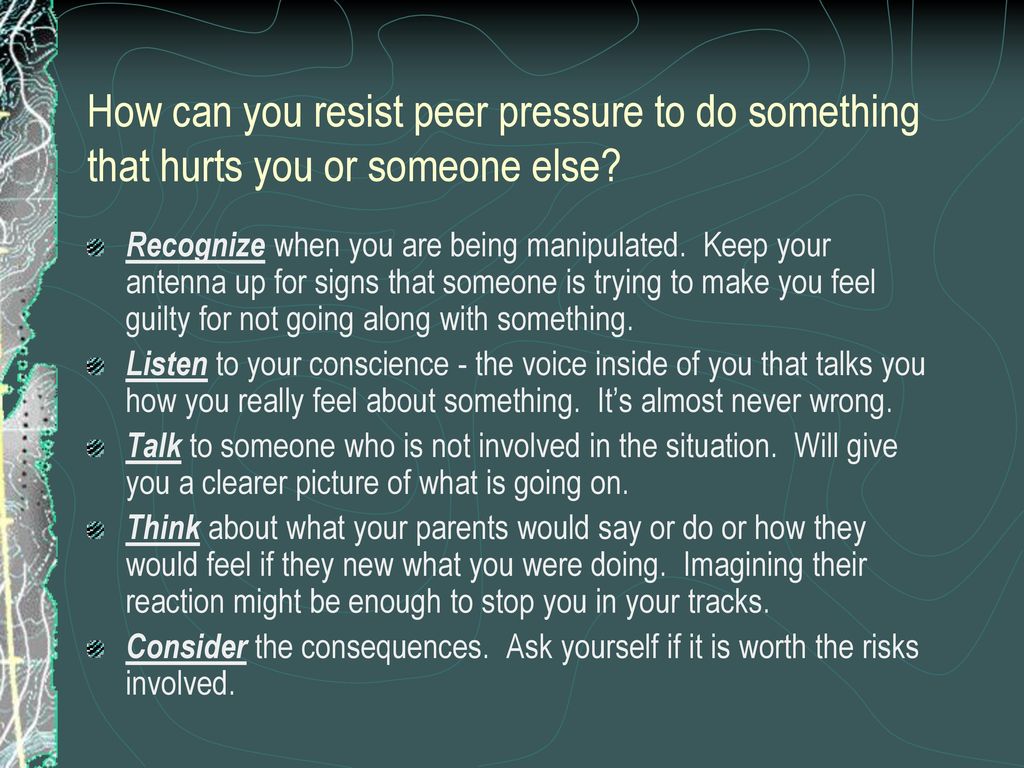
9. Have an actual conversation about it and hear their side
Most people just want to make another feel guilty and that’s all. They don’t care what was going on in their mind or how they’re feeling.
But you have to. They may not have even meant for something to hurt you. So let them speak.
Hear what they have to say before just drilling them for upsetting you. You’ll get a lot further this way than any other way. [Read: Intentionally hurting someone you love – Why we do it and how to stop]
10. Accept that they just don’t care
You can’t change everyone. Some people, no matter how hard they try, will never accept that they did something wrong. They just get on the defensive right away and don’t care who they hurt.
You can’t expect to try to make someone feel guilty forever.
After a while, you just have to realize that they really don’t care and they never will. Move on with your life and don’t let them hold back your feelings any longer.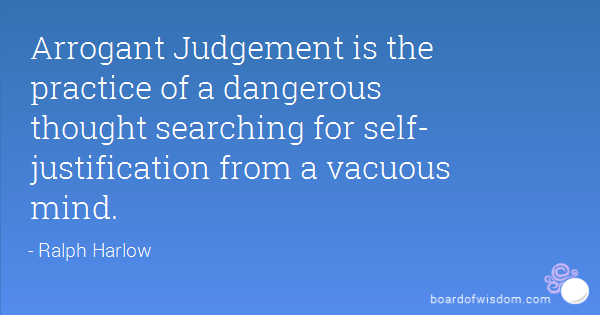 [Read: 20 signs of a lack of empathy that shows they don’t care what you think about them]
[Read: 20 signs of a lack of empathy that shows they don’t care what you think about them]
Why do you want to make someone feel guilty?
Now that you know what guilt is and how you can make someone feel guilty, you should think about your reasons for doing so.
The reason you should think about this is that guilt is a terrible emotion. No one likes to feel guilty.
So, you first need to think about whether that person actually did something that bad. You have to ask yourself if your perspective on their behavior is correct or if you’re just blowing things out of proportion. [Read: How to recognize the physical and emotional signs of a guilty conscience]
For example, if someone just forgot to clean the kitchen one time, making them feel guilty for it may not be appropriate. But if it becomes a bad habit and it’s creating resentment inside you, then maybe making them feel guilty will get them to change their behavior.
Now, when they did something that really betrayed your trust, then you might have a better reason for making someone feel guilty. If they cheated, lied, or abused you in some way, they should feel guilty already. If they don’t, then you have a problem on your hands.
If they cheated, lied, or abused you in some way, they should feel guilty already. If they don’t, then you have a problem on your hands.
The point is, you need to get clear on how and why you want to make someone feel guilty. If their actions were that bad, then, by all means, go for it. But if you are making a mountain out of a molehill, then maybe you should re-think it and ask yourself why you want to hurt someone intentionally.
[Read: 14 ways people use emotional manipulation to mess with your mind]
Knowing how to make someone feel guilty has a lot to do with opening up and showing them what they’ve done. It might not be easy for you, but if you want to remain close to that person, it’s worth teaching them a lesson.
Liked what you just read? Follow us on Instagram Facebook Twitter Pinterest and we promise, we’ll be your lucky charm to a beautiful love life.
How To Make Someone Feel Bad Like They Did To Me
When someone wrongs you or makes you feel bad, you might want karma to send them a little payback. They’ve wronged you; you feel bad and frustrated; you think about returning their wrong with a wrong. Depending on how angry and resentful you are, you might even be plotting your own revenge, trying to figure out how to make them feel as awful as you did. It often feels unfair and unjustified to not be able to retaliate, or to be forced to let things go - you might feel powerless. We may want to make the other person feel as bad as we felt; but this type of behavior can lead us to hold onto toxic grudges that cause us more harm in the end. It can be easier to overcome the bitter and hopeless feelings than taking revenge.
They’ve wronged you; you feel bad and frustrated; you think about returning their wrong with a wrong. Depending on how angry and resentful you are, you might even be plotting your own revenge, trying to figure out how to make them feel as awful as you did. It often feels unfair and unjustified to not be able to retaliate, or to be forced to let things go - you might feel powerless. We may want to make the other person feel as bad as we felt; but this type of behavior can lead us to hold onto toxic grudges that cause us more harm in the end. It can be easier to overcome the bitter and hopeless feelings than taking revenge.
We may ask ourselves, "Why do some people treat others so cruelly?" If a certain someone always makes you feel ashamed, miserable, sad, or angry, should you do anything about it? Is it better to shrug it off and move on, or should you address your negative feelings head on? In this article, we'll talk about the best way to deal with justified anger. We'll also explore how online therapy can be a healthy space for you to process your anger and emotions. Feeling humiliated can make one feel isolated.
Feeling humiliated can make one feel isolated.
Expressing Your Feelings Can Feel Hard, But it Takes Practice And Effort. Online Therapy is a Great Way to Manage Your Feelings.
Help Them Realize Their Actions Were Wrong
If you believe someone caused you harm, one of the best ways to get even is to help them realize how their actions have affected you. If you speak to them one-on-one, you may be able to offer insight into what transpired between you two and offer another perspective. In the best-case scenario, this person will see how their actions hurt you, apologize, and avoid this behavior in the future. Using the right language news and knowing more synonyms for the words and emotions you feel will you help you successfully communicate.
In order to have the best possible chance of success, be sure search and organize thoughts before you speak to them and come prepared with what you want to address. Do your best to be in a calm, even mood, and speak clearly and concisely without going off on tangents that are unrelated to what happened. You goal isn’t to make them feel ashamed, but to let them know that you’re feeling upset by their behavior.
You goal isn’t to make them feel ashamed, but to let them know that you’re feeling upset by their behavior.
It can even be helpful to practice what you plan to say or to role play the conversation with someone you trust first.
However, there is a chance that the person you confront will not understand or agree that their actions were wrong. In this case, you might have to agree to disagree, but at least you had the chance to air your feelings. Hopefully, speaking your mind in a respectful way will help dissipate the negative feelings you've been experiencing. If not, there are other ways that you can clear this negative energy.
Retaliation Is Not the Way
It's possible that this person did something unforgivable. You might feel the need to retaliate to save your pride. While understandable, this is not a healthy option for anyone involved. It also doesn't accomplish anything.
Though you might feel vindicated in the moment, the feeling is unlikely to last. Then you will have to deal with the feelings from the original injustice, in addition to the guilt that will accompany the retaliation. If you believe that what they did is unforgivable, is it something you wouldn't be able to forgive yourself for? Are you sure? We never recommend hurting anyone emotionally or physically. If you've already tried speaking with them, it's time to consider other options.
Then you will have to deal with the feelings from the original injustice, in addition to the guilt that will accompany the retaliation. If you believe that what they did is unforgivable, is it something you wouldn't be able to forgive yourself for? Are you sure? We never recommend hurting anyone emotionally or physically. If you've already tried speaking with them, it's time to consider other options.
Processing Emotions
They will likely agree that you were wronged, and sometimes validation can be just what you need to put something behind you. Alternatively, they may offer a different perspective on the matter that enables you to move on and if you spend time with someone you trust and love, you might start to realize you no longer feel ashamed.
It is also a good idea to sit with the feelings you're experiencing. Feelings eventually pass; like a wave, they eventually break on the shore. The better you get at sitting with feelings and letting them pass, the better you'll be at recognizing that these feelings will not harm you. Often, the worst they can do is make you feel uncomfortable for a while. It's not fun, but it's better than dealing with the aftermath if you do retaliate. And think about how retaliating will make you feel. Won't it put you on the same level as the person you dislike? Process these feelings and move on.
Often, the worst they can do is make you feel uncomfortable for a while. It's not fun, but it's better than dealing with the aftermath if you do retaliate. And think about how retaliating will make you feel. Won't it put you on the same level as the person you dislike? Process these feelings and move on.
Expressing Your Feelings Can Feel Hard, But it Takes Practice And Effort. Online Therapy is a Great Way to Manage Your Feelings.
Compassion
One of the best ways to change your mindset is to try to have compassion for the person who wronged you. Could it be that they lashed out at you because they were responding to something that happened in their own life? It might not be about you at all. They may not even know that you were collateral damage in something that was completely unrelated to you. Some people act without realizing that they may be making someone else feel bad, even someone they might love.
Having compassion for others can give us the opportunity to understand others better and see that they are not all that different from us. Of course, it doesn't make certain actions okay, but it can help us to understand what caused them. Compassion doesn’t mean that we forget what happened, but it can mean treating the other person with empathy. You might also try to search for synonyms for compassion might help guide you, such as showing humanity, charity, love, or mercy, even when you don’t feel you were treated in these ways.
Of course, it doesn't make certain actions okay, but it can help us to understand what caused them. Compassion doesn’t mean that we forget what happened, but it can mean treating the other person with empathy. You might also try to search for synonyms for compassion might help guide you, such as showing humanity, charity, love, or mercy, even when you don’t feel you were treated in these ways.
Boundaries
Finally, set boundaries. Healthy boundaries in relationships ensure that each individual is treated in a way that they deserve. Communicate your beliefs and feelings honestly in order to set healthy limits, so you both feel respected and understood. We teach others how to treat us, and with healthy boundaries, relationships can flourish.
What Do Verbs Have To Do With It? Doing And FeelingAnd Thinking
Let’s search a little deeper and talk about the verb “doing” and the verb “feeling.” A verb is an action word, right? And a verb can also be a state of being or feeling. A feeling verb is connected to our emotions. Another person might act in a certain way (an action verb) and then you may feel bad (a feeling verb). Then in response to your verb (feeling bad), you might decide you want to take action (yet another verb). But what’s the right action verb to take? And can their action verb towards you really “make” you feel a certain way? One helpful thing to remember is that you can learn to manage your feelings with some helpful techniques. That way you can have a little more control over managing your “feeling” verb (control over how you feel and what you do with your feelings). And you can also learn effective ways to respond to their behaviors by using a healthy action verb (or more than one verb). This is more than a grammar lesson! You can keep your action verb positively even if their action verb is or was negative by using the following strategies.
A feeling verb is connected to our emotions. Another person might act in a certain way (an action verb) and then you may feel bad (a feeling verb). Then in response to your verb (feeling bad), you might decide you want to take action (yet another verb). But what’s the right action verb to take? And can their action verb towards you really “make” you feel a certain way? One helpful thing to remember is that you can learn to manage your feelings with some helpful techniques. That way you can have a little more control over managing your “feeling” verb (control over how you feel and what you do with your feelings). And you can also learn effective ways to respond to their behaviors by using a healthy action verb (or more than one verb). This is more than a grammar lesson! You can keep your action verb positively even if their action verb is or was negative by using the following strategies.
Feeling and acting: 20 examples of productive responses
- Act kindly (an action verb)—which can set a good example and keep you on a positive track.
 In otherwise, fight negative behavior with positive behavior.
In otherwise, fight negative behavior with positive behavior. - Recognize that you have control (a state of being verb; feeling in control) of yourself—which can help you manage your emotions.
- Steer clear (an action verb)—which can give you a needed break from their behavior. It’s okay to stay away from them if you can (another action verb).
- Stand up for yourself (an action verb) by saying “no” or telling the person (respectfully) that you won’t tolerate their negativity towards you.
- Feel your feelings (a feeling verb, of course)—if you feel sad or hurt or angry, try acknowledging the way you feel, giving yourself a bit of time, and then moving forward.
- Observe the other person (an action verb)—which may give you insight into their behavior and into your feelings. For instance, you may discover that the way they act has little to do with you and a lot to do with what’s going on with them. They may be feeling bad (a feeling verb) about something in their lives and be taking it out on you.
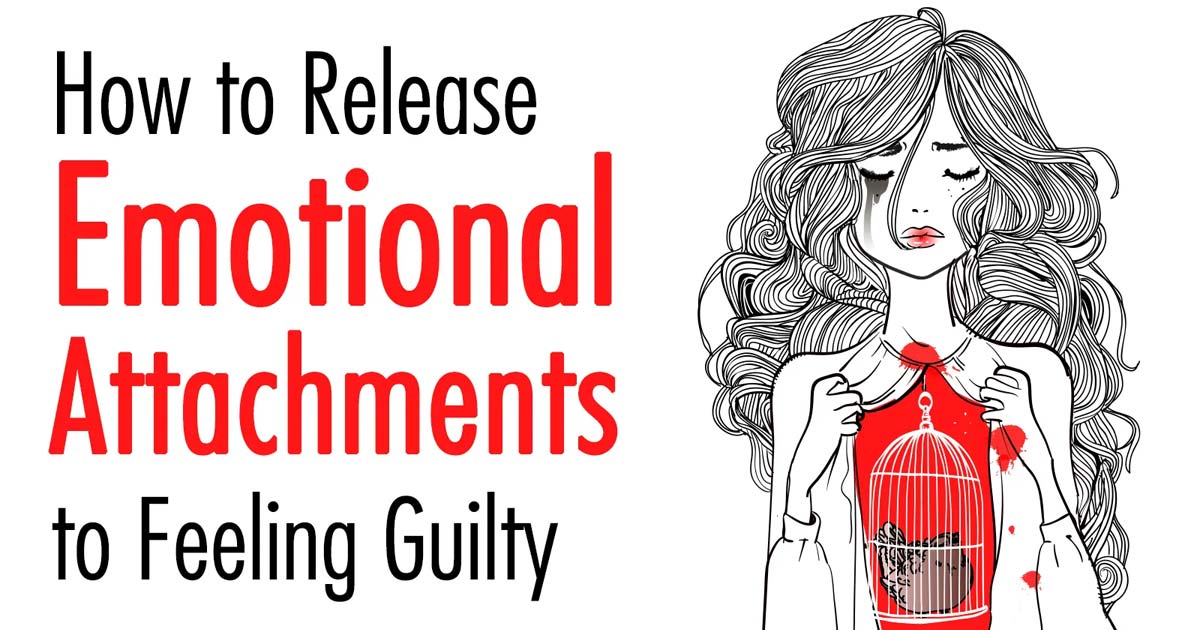
- Feel compassion (a feeling verb or state of being verb) for the other person—which can feel a lot better than anger. You don’t have to return the pain, unkindness, or shame (or any other synonyms for feeling bad).
- Feel self-compassion (another feeling or state of being verb) for yourself—which can help you recognize that the way you feel is pretty bad and you deserve kindness and love.
- Try to feel empathy for the other person (a feeling verb)—which can help you understand that they may going through something or feeling bad themselves.
- Breathe deeply (an action verb)—which can calm your body and mind and help you feel better.
- Use confident body language (an action verb)—which can send a message that you’re serious about what you’re saying and that you’re strong.
- Use the words, “I feel” (an action verb) if you speak to the other person—which may help them listen more carefully rather than getting defensive if you say, “You did this or you did that.
 ”
” - Give specific, concrete examples of their behavior (an action verb)—which may help them see what particular behaviors hurt you.
- Offer an alternative to their behavior (an action verb)—which can help them see other, less hurtful options to their behavior.But don’t try to “fix” them because you can’t make someone change.
- Feel your own power (a feeling verb)—which can remind you that are strong and resilient, even if the face of meanness.
- Ask for help (an action verb)—which can get you the support of positive people.
- Practice self-reflection (a state of being verb)—which can help you see if there’s something you could do more positively.
- But don’t blame yourself (a feeling verb) for the hurtful behavior of others—which can help you help you eliminate self-doubt.
- Say something positive to them (an action verb) when and if you discuss your feelings with them—which can help them recognize that you’re not attacking them and can help you stay calm and productive.

- Say something positive to yourself (both an action verb and a feeling verb)—which can help you be conscious of your strengths and your value, even when you’re feeling bad.
So, we’ve seen the connection between feelings and actions (ours and other people’s). Now let’s add another category of verb—the thinking verb. Each type of verb—thinking, feeling, and acting—are often connected to each other. In therapy, you can learn how they relate to each other. You can also learn helpful ways to manage your thoughts, feelings, and behaviors so that you live a better life and have better relationships. So, the bottom line is that talking with a therapist (an action verb) can be a very effective way to feel better (a feeling verb). And the verb “feeling” is more than just a lesson in grammar; it’s crucial for your wellbeing, so please see help if you feel you need it and know there are great, effective options available.
Seek Closure Through Counseling
If you decide that you want to let go of the anger you feel toward this person, you might notice that it isn't easy to do alone. A counselor can help you process what they did and help you come to terms with it.
A counselor can help you process what they did and help you come to terms with it.
An increasingly large body of research points to online therapy as an effective method of helping people with powerful emotions, such as anger or sadness, manage those feelings. For example, in one study, researchers examined the effects of online therapy on individuals experiencing harmful or destructive anger, noting specifically its negative effects on interpersonal relationships. The study found that online counseling can work to significantly reduce anger in participants.
As mentioned above, if you’re having trouble letting go of emotions arising out of a conflict with a friend or loved one or you’re on a search to learn new ways to manage your feelings and relationships, online therapy is there to help you work through your feelings. With BetterHelp, you have the option of participating in therapy completely anonymously. And because there are no pricey offices or similar expenses, online therapy through BetterHelp is often more affordable than traditional, in-person therapy. A licensed online counselor can guide you on the path toward letting go of unhealthy emotions directed toward certain people in your life. Read below for reviews of BetterHelp therapists, from those who have sought help in the past.
A licensed online counselor can guide you on the path toward letting go of unhealthy emotions directed toward certain people in your life. Read below for reviews of BetterHelp therapists, from those who have sought help in the past.
Counselor Reviews
"In my short time working with Teneka, I feel more understood and supported than I thought was possible. After our very first session, she brought so much to my attention in a new way I had never thought of things before. I actually truly look forward to my sessions and feel like she has help me uncover deep challenges and hurts I experienced as a child that have truly changed and shaped the way I view myself and my life. I love that she is honest but positive. Coming from a low place in life, it's often that small day of light that can bring someone out of the overwhelming darkness. So thankful that I am blessed to be working with Teneka."
\\
"Mary Smith is very thoughtful and a great listener. I can tell she has a lot of experience dealing with many situations and people, which gives me comfort. She always stays on track with my concerns and goals, and always offers relavent suggestions and tools to help me to conquer issues. I definitely recommend Mary Smith to anyone who feels stuck in their toxic ways formed by difficult past experiences, but you want to overcome. I believe Mary has the skills to help someone who really wants to change for the better."
I can tell she has a lot of experience dealing with many situations and people, which gives me comfort. She always stays on track with my concerns and goals, and always offers relavent suggestions and tools to help me to conquer issues. I definitely recommend Mary Smith to anyone who feels stuck in their toxic ways formed by difficult past experiences, but you want to overcome. I believe Mary has the skills to help someone who really wants to change for the better."
Conclusion
Feeling like we need to get back at someone can be poisonous, affecting our thoughts and actions in a negative and unhealthy way. We've all been wronged at one point or another, but there is light ahead. Your feelings about that other person may never change completely, but you can learn to let go of your grudge for the sake of your own happiness. Truly fulfilling relationships are possible—all you need are the right tools. Take the first step today.
Below are some commonly asked questions on this topic:
- What is it called when you make someone feel bad?
- What is called when you make someone feel?
- Is guilt tripping a form of gaslighting?
- What word means meant to hurt or upset someone?
- What is the word for making someone feel inferior?
- What is the synonym of provoke?
- What is the synonyms of humiliate?
- What are gaslighting examples?
- How a narcissist makes you feel guilty?
- What is the difference between gaslighting and manipulation?
6 phrases that make you feel guilty
62 487
Know yourself A man among people
Manipulation with the help of guilt is the most elementary and common method of everyday manipulation. Remember how many times a month you play a grudge in front of your partner or friend so that he, feeling guilty, fulfills your desires. This is the most typical, but far from the only example.
Remember how many times a month you play a grudge in front of your partner or friend so that he, feeling guilty, fulfills your desires. This is the most typical, but far from the only example.
1. “Other mothers will come!”
... The child declares in response to your refusal to come to a school holiday, a football match, a reporting concert of a music studio. You have a blockage at work, an annual report and ten other good reasons. However, you still feel guilty.
“It's a matter of social pressure,” says psychologist Marie-Yves Landry. Some mothers are actively involved in the life of the child. As a result, your son or daughter is afraid to be different. And you, of course, are also worried.
How to behave? Decide if you are willing to sacrifice a job, business meeting or other plans for the sake of the child this time. If you can't, promise to come next time. And then surely fulfill your obligations. And this time, a grandmother or aunt can go to school so that the child does not feel deprived of attention.
2. “And after what I did for you!”
... A father, mother or other elderly relative complains in response to a refusal to comply with his request. In this situation, it is logical to feel guilty, because your parents really put a lot of effort into your upbringing. Now you are investing in your children. But it's your choice. Just like once upon a time sacrificing something for you was the choice of your parents.
How to behave? Try to tell your parents more often how much you appreciate them. And indulge as much as possible, without waiting for an insistent request. Then you can refuse in a certain situation without being tormented by guilt.
3. “I should have thought about it!”
...You are tormented by being stuck in traffic and hopelessly late for an important meeting. “If you often repeat this phrase, then you are used to blaming yourself for everything. Although sometimes we are simply powerless in the face of circumstances, ”explains the psychologist. Such behavior is counterproductive.
Such behavior is counterproductive.
How to behave? Think, could you have foreseen this traffic jam? And will it help that you lament about it? Isn't it more important to try to find a way out of the situation? For example, leave the car in the nearest parking lot and try to get to the right place by metro. Instead of blaming yourself for everything, it’s better to praise later that you were able to find the right solution.
4. "I need you to help me!"
...a colleague announces when you are about to leave the office. “The word “need” makes you feel obligated to do a duty. We were taught from childhood to help friends in a difficult situation. They suggested that a good person will always come to the rescue, ”explains the expert.
How to behave? Is your help really important in this situation? Why is a colleague asking you specifically? Can he manage on his own? And if you don't, how serious are the consequences? Many factors influence the right decision in this situation. But most importantly, do not confuse friendships and relationships between colleagues.
But most importantly, do not confuse friendships and relationships between colleagues.
5. “We all know how busy you are.”
...A friend remarks ironically when you cancel a long-planned meeting. Sometimes hints, omissions, a special intonation and a meaningful look hurt more than directly expressed claims. And then you yourself conjecture the degree of resentment of a friend and its causes.
How to behave? Be honest. Tell me why you can't come. Perhaps he is not offended at all. Just don't start with an apology and don't try to make excuses. So you only show weakness. If the meeting failed not the first time because of your busyness or forgetfulness, think about how to please a friend. For example, give him a nice surprise, send him a cute card or a song you loved in school.
6. “You've relaxed a little.”
...So delicately your spouse hints that you've gained a few extra pounds. You yourself know that you are not in shape now, but this is your body. Why do you feel guilty? “In this case, it is born out of a conflict between the body that you have and the ideal figure that you have always dreamed of,” says Marie-Yves Landry. Who among us would not like to be slim. But for this you need to go on a diet and go to the gym. We don't, and therefore we are ashamed of our laziness."
Why do you feel guilty? “In this case, it is born out of a conflict between the body that you have and the ideal figure that you have always dreamed of,” says Marie-Yves Landry. Who among us would not like to be slim. But for this you need to go on a diet and go to the gym. We don't, and therefore we are ashamed of our laziness."
How to behave? Instead of being ashamed or offended by your partner for this reproach, it is better to discuss your relationship. What prompted his remark? Maybe he's just worried? Afraid that you will lose your former lightness or that you may have health problems? Offer to start the fight for harmony together. Eating right or going to the gym is more fun together.
About the Expert: Marie-Yves Landry is a clinical psychologist based in Montreal. Specialist in stress, anxiety, adaptation.
Text: Nina Nabokova Photo Source: Getty Images
New on the site
“My wife's parents made me take their son on their honeymoon trip”
How do you tell if you're an empath or a hypersensitive person?
Whipping, bondage and fetishes: what I saw at a kinky party
How to stay in a state of psychological comfort at any time: 7 rules how to break up with a married lover
Mental clues: what your anger says
“I wrote a book and my friends turned their backs on me. Is it out of jealousy?
Is it out of jealousy?
How to make someone feel guilty so that he realizes everything?
If a person does not care and he just enjoys life in this way, he will still continue to do the same. He may hurt you again or hurt someone else. If you want him to know how much you hurt, show it.
Guilt is a very strong emotion, if a person, of course, feels it.
Many people ignore guilt. They are unwilling to admit that they did something wrong. They simply do not pay attention to it, even forget about it later if no one reminds them. But it is very important for people to feel it.
Because guilt can teach lessons. The more a person worries about this, the more he realizes what he has done. And those who ignore guilt often repeat the same mistakes, only each time their “pranks” manifest themselves in an uglier and more “toxic” way.
How to Make Someone Feel Guilty So They Realize
It is necessary to make a person feel guilty. But what can hurt you even more is when the person doesn't care at all. This is often the result of his ignorance. If you really want to make someone feel guilty, here's how to do it.
But what can hurt you even more is when the person doesn't care at all. This is often the result of his ignorance. If you really want to make someone feel guilty, here's how to do it.
Define your feeling
You can't cry out in pain if you don't know how much it hurts. Are you angry? Offended? Do you want to hurt this person?
You really need to think about the emotions that are swirling around in your head so that you can pinpoint exactly what they are. Once you recognize them, you can reason about why this person made you feel this way. Only then can you work on making him feel guilty.
Take the time to make a plan
You can't go up to someone and start screaming about how much you've been hurt. It almost never works and ends up looking like crazy. And do you really think that a person will feel guilty when he is shouted about it in his face?
No. You should take some time to put together a plan of action in the first place. Sit down and think better about how to get the attention of this person so that you can talk to them about important things. Once you understand how you feel and what you want to say, you can move on to the next step.
You should take some time to put together a plan of action in the first place. Sit down and think better about how to get the attention of this person so that you can talk to them about important things. Once you understand how you feel and what you want to say, you can move on to the next step.
Present your arguments
Just do it, but don't be aggressive. The person will already begin to feel guilty when you tell him about your pain. Nobody wants to admit that he upset someone. And so he will avoid you if you start making accusations.
Instead, make sure you are calm and can talk about things in a civilized manner. Even if you are really angry at heart, try to look nice and adequate on the outside so that you can really hook the person before they get defensive.
Make the person feel like they belong in the situation
Often people don't feel guilty because they can't figure out what their fault is.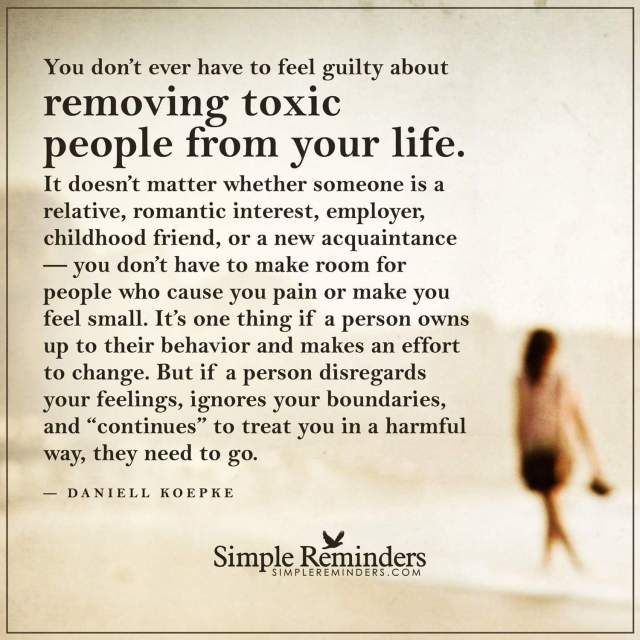 This misunderstanding arises from the fact that they consider themselves not involved in the fact that you are hurt. To fix this, you must talk to them in a way that they can understand.
This misunderstanding arises from the fact that they consider themselves not involved in the fact that you are hurt. To fix this, you must talk to them in a way that they can understand.
Therefore, explain the situation in an understandable way. Analogies are great for this as you paint the same situation in a new light. So the person will understand better.
Let him see that you are hurting
It's okay to show your pain. You don't have to force yourself to hide it. If you want to cry, then cry. Show the person how much pain they have caused you.
However, control yourself so that he does not think that you are very dramatic. Trying to hide how you really feel will make the person think you are cheating. And all the stories about how much it hurts you will be perceived as a farce.
Draw his attention to you
It's not always good to indulge in drama, but some people need it. Sometimes you literally have to go crazy to get the attention of the offender. So put on a show. If you haven't been able to reach him in any other way, this may be your only option.
Sometimes you literally have to go crazy to get the attention of the offender. So put on a show. If you haven't been able to reach him in any other way, this may be your only option.
Once you realize you've got his attention, slow down. Try to make sure that he understands what you are getting at. Otherwise, he will just get angry and refuse to listen to you.
Treat him accordingly
You were in pain. The person did something bad to hurt you, and you should treat them accordingly. You may not even want to talk to him afterwards. Treat him like he did something terrible and you don't like it.
Avoid him and even insult him if necessary. Some people need this kind of "treatment" or they won't realize how badly they've done. If you act the same as always, they will think that you have not been harmed, that everything is fine.
Talk about it logically
Do not talk about yourself all the time, discussing why you are hurting. Describe what happened logically. Take yourself out of this equation. Show that someone was hurt in this situation, and it's not just you.
Describe what happened logically. Take yourself out of this equation. Show that someone was hurt in this situation, and it's not just you.
Some people think that a person is just too sensitive and doesn't hurt as much as he says. A logical explanation for why you feel this way can help them understand that your sensitivity isn't the problem.
Talk seriously and find out the opinion of the offender
Most people just want the other to feel guilty, that's all. They do not care what prompted them to such actions.
But you must. Maybe the person didn't even want to hurt you. So let him speak. Listen to him before attacking with your grievances. You will be able to understand much more than if you use any other method.
Come to terms with the fact that he doesn't care
You cannot change everyone. Some people, no matter how hard you try, will never admit they did wrong.








